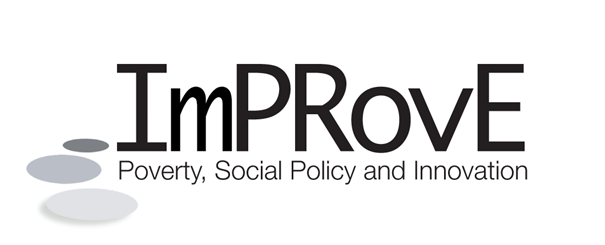ImPRovE was officially launched on 1st March 2012 and in May 2012 we held the ImPRovE kick-off meeting in Antwerp. In total, 35 researchers from all over Europe attended the meeting.
After an introduction to the ImPRovE project by the ImPRovE coordinator prof. Bea Cantillon, the meeting started with three keynote speeches. Each of the speeches touched upon another key dimension of the ImPRovE project. The definition and measurement of poverty was central to the talk by Sir Tony Atkinson, probably the most experienced poverty researcher in Europe. Among other things, he highlighted the big change in available data to poverty researchers as well as the need to continuously look for more and better data and approaches, including the use of administrative sources. Furthermore, he underscored the need and usefulness of in-depth historical country studies, apart from cross-national comparative research.
Social policy was the central concern of the talk by Frank Vandenbroucke, former Belgian Minister for Social Security, Health Insurance, Pensions and Employment. He discussed the question about the desirability of EU involvement in the governance of minimum income protection. He concluded that a caring Europe should care for poorer Member States and demand social efficiency everywhere; and that a virtuous circle of solidarity in Europe would be one where both internal (domestic) and external (pan-European) solidarity are enhanced. In other words,
Local forms of social innovation were the central topic in the speech of Stijn Oosterlynck, Assistant Professor at the University of Antwerp. He introduced the concept of social innovation to the audience as the (1) bottom-up community or collective articulation of/ response to social needs unmet by state or market; (2) integrated (as opposed to sectoral) approach to meeting social needs and tackling exclusion and (3) socially innovative in its methods as well as aims. Furthermore, he shortly discussed the principal research projects on social innovation financed by the European Commission, such as SINGOCOM, DEMOLOGOS, KATARSIS and Social Polis; and explained the main research questions about social innovation that will be addressed in the ImPRovE project.
The rest of the meeting was dedicated to presentations of all work packages and the discussion of common approaches and procedures for making the project running. An overview of all ImPRovE Work packages, can be found here.

